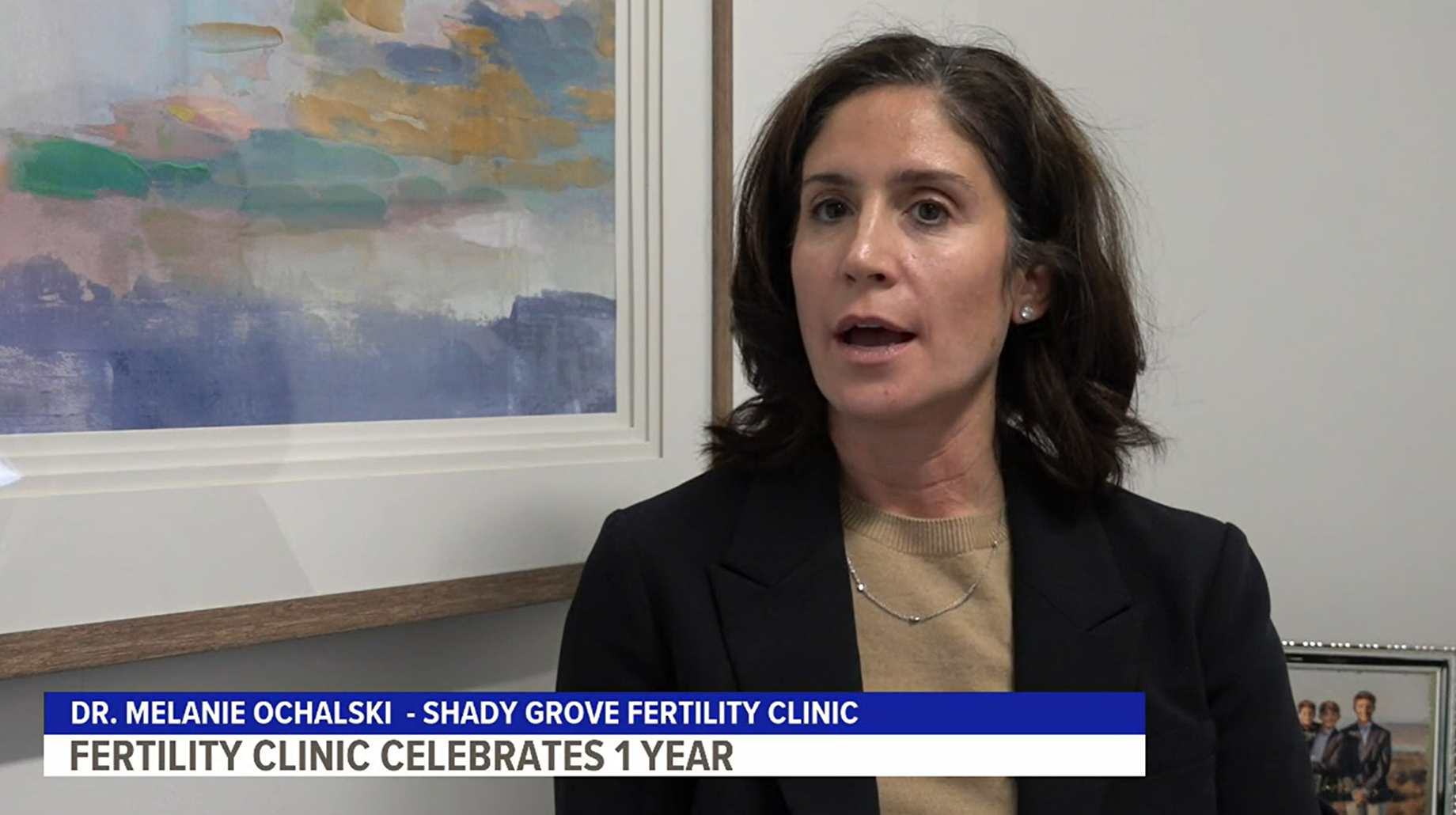Your doctor may have diagnosed you with polycystic ovary syndrome, otherwise known as PCOS. PCOS is the most common ovulatory disorder in women of reproductive age, with one in 10 women diagnosed with this condition. There are many misconceptions about this diagnosis that can lead to unwarranted fears or different ideas of what PCOS means for your health and for getting pregnant. Dr. Kara Nguyen of SGF’s Reading, PA office discusses five important things to know about PCOS.
1. It doesn’t necessarily mean that you have ovarian cysts.
Many women think that having PCOS means that they have cysts on their ovaries. Fortunately, PCOS is a misnomer and does not mean that there are ovarian cysts and it does not mean that surgery is required to treat cysts if they do form. “Polycystic ovaries” is the ultrasound appearance of many small follicles in the early stages of egg development. These follicles give the ultrasound appearance of a black “string of pearls.” The majority of these early follicles do not grow, mature, or ovulate. For that reason, most women with PCOS do not have regular menstrual cycles and may have difficulty getting pregnant without medication.
2. PCOS has variable early warning signs and symptoms.
Not all patients with PCOS have the same symptoms, which can make the diagnosis tricky. A very common sign is irregular menstrual cycles or the absence of a menstrual cycle. It is important to remember that many things other than PCOS can cause menstrual irregularity so it is important to be evaluated for alternative conditions in order to confirm the diagnosis of PCOS. Some patients with PCOS have elevated testosterone levels in their blood while others may have unwanted hair growth or persistent acne. Patients can be thin or obese. The ovaries may have the classic “string of pearls” appearance or not. A fertility specialist is trained to determine whether your individual signs and symptoms are consistent with the diagnosis of PCOS.
3. PCOS can increase your risk of uterine cancer.
When there is no regular menstrual bleeding because of lack of ovulation, the lining of the uterus does not get a chance to shed and start over. In PCOS, the lining continues to thicken over weeks or months. This can increase the risk of uterine cancer. We recommend that patients with PCOS, when not attempting to become pregnant, receive medical therapy to evaluate the endometrial lining helping to minimize the risk of cancer.
4. There is an increased risk of metabolic syndrome.
Metabolic syndrome involves elevated blood pressure, low HDL (good cholesterol), high triglycerides (increases risk of heart disease), obesity, and diabetes. Because patients with PCOS have a higher risk of developing this condition, the American College of Obstetricians and Gynecologists and the American Society for Reproductive Medicine recommend that patients with PCOS have annual screening for these conditions. Earlier detection means more effective treatment and a long and healthy life.
5. Being diagnosed with PCOS doesn’t mean that you can’t get pregnant.
It is true that many patients with PCOS have difficulty getting pregnant on their own. Unlike women who ovulate and have a period every month, women with PCOS don’t ovulate in a predictable fashion (or at all) and therefore may have fewer opportunities to become pregnant each year. However, there are very effective lifestyle changes, medications, and basic, low-tech treatments for PCOS that increase your chances of ovulation each cycle. In fact, of all conditions known to contribute to infertility, PCOS is one of the easiest to fix.
To watch our On-Demand Webinar on PCOS, click here. During this free, on-demand event, viewers will learn about the symptoms of PCOS, the role they play when trying to conceive, and treatment options that are available to help women overcome their infertility caused by this condition.
Medical contribution by: Kara Nguyen, M.D., M.P.H. of Shady Grove Fertility’s Reading, PA and Harrisburg, PA offices.
Have you been diagnosed with PCOS? Please call 1-877-971-7755 and speak with a Patient Liaison in our New Patient Center to schedule an appointment or fill out this brief online form.
At Shady Grove Fertility, we’re here to give you the caring support you deserve as you start or grow your family. As a leading fertility and IVF center of excellence, we offer patients individualized care, innovative financial options, over 30 accepted insurance plans, and pregnancy rates among the highest of all national centers. We offer patients the convenience of 19 full-service and 6 satellite locations across Maryland, Pennsylvania, Virginia, and Washington, D.C. More than 1,700 physicians choose Shady Grove Fertility to refer their patients, and more than 96 percent of our patients say they would recommend Shady Grove Fertility’s 35+ physicians to a friend. With 10 Shady Grove Fertility babies born each day, your dream of starting or growing your family is within reach.






